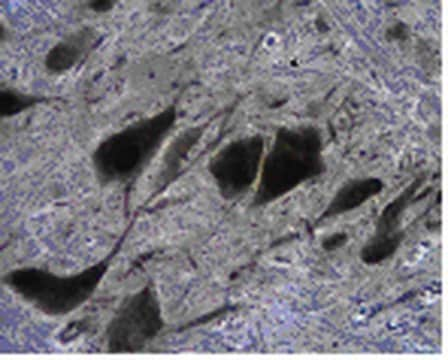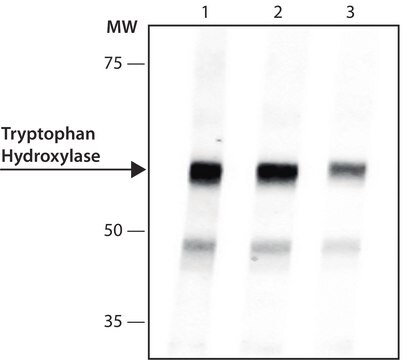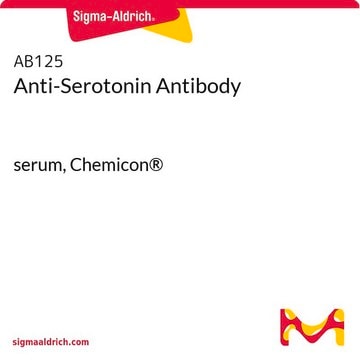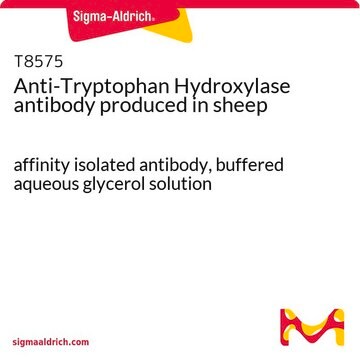T0678
Anti-Tryptophan Hydroxylase Antibody
mouse monoclonal, WH-3
Sinónimos:
Anti-TPH
About This Item
ELISA (i)
IHC
WB
indirect ELISA: suitable
microarray: suitable
western blot: 1:1,000 using rabbit pineal gland extract
Productos recomendados
Nombre del producto
Monoclonal Anti-Tryptophan Hydroxylase antibody produced in mouse, clone WH-3, ascites fluid
biological source
mouse
Quality Level
conjugate
unconjugated
antibody form
ascites fluid
antibody product type
primary antibodies
clone
WH-3, monoclonal
mol wt
antigen 55 kDa
contains
15 mM sodium azide
species reactivity
human, monkey, rabbit, rat
technique(s)
immunohistochemistry: suitable
indirect ELISA: suitable
microarray: suitable
western blot: 1:1,000 using rabbit pineal gland extract
isotype
IgG3
UniProt accession no.
shipped in
dry ice
storage temp.
−20°C
target post-translational modification
unmodified
Gene Information
human ... TPH1(7166) , TPH2(121278)
rat ... Tph1(24848) , Tph2(317675)
Categorías relacionadas
General description
Specificity
Immunogen
Application
- enzyme-linked immunosorbent assay (ELISA)
- immunohistochemistry
- immunoblot
- immunocytochemistry
Biochem/physiol Actions
Disclaimer
¿No encuentra el producto adecuado?
Pruebe nuestro Herramienta de selección de productos.
Optional
Storage Class
10 - Combustible liquids
wgk_germany
nwg
flash_point_f
Not applicable
flash_point_c
Not applicable
Elija entre una de las versiones más recientes:
Certificados de análisis (COA)
¿No ve la versión correcta?
Si necesita una versión concreta, puede buscar un certificado específico por el número de lote.
¿Ya tiene este producto?
Encuentre la documentación para los productos que ha comprado recientemente en la Biblioteca de documentos.
Los clientes también vieron
Nuestro equipo de científicos tiene experiencia en todas las áreas de investigación: Ciencias de la vida, Ciencia de los materiales, Síntesis química, Cromatografía, Analítica y muchas otras.
Póngase en contacto con el Servicio técnico









